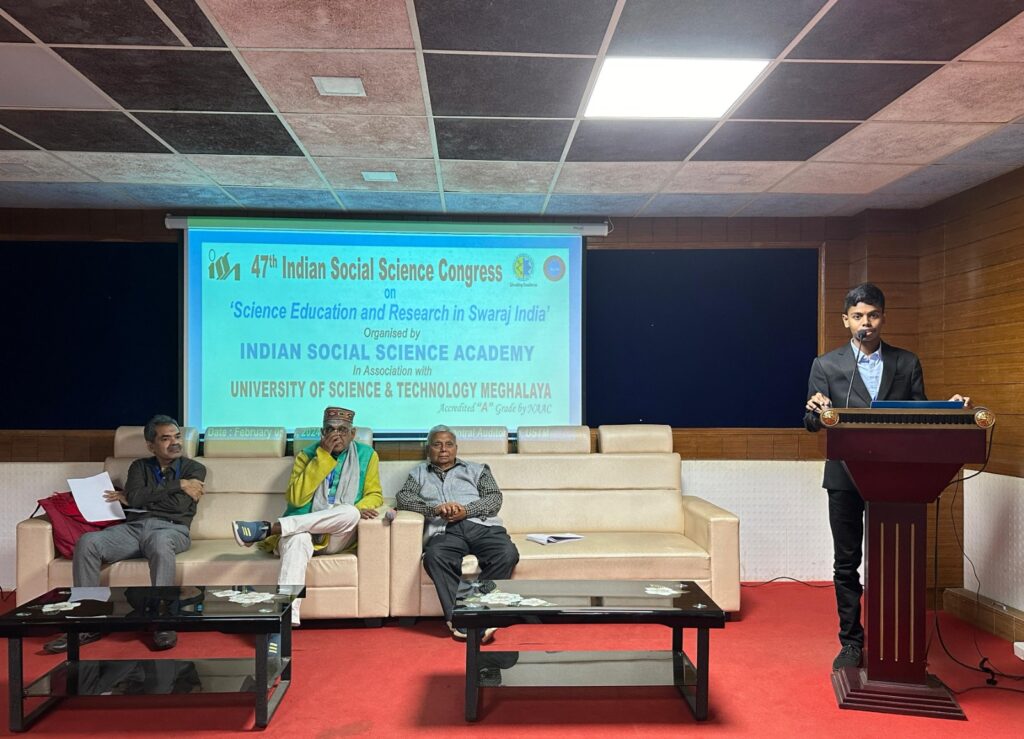Guwahati: The 47th Indian Social Science Congress, organized by the Indian Social Science Academy (ISSA), and hosted by the University of Science and Technology Meghalaya (USTM) has successfully culminated here today. The five-day-long event, held from February 5 to February 9, 2024, witnessed the convergence of over 200 academicians and scholars from various universities and colleges across India.The 49th Annual General Body Meeting of the Indian Social Science Academy was also held on 6th February 2024.

There were task force meetings and many illuminating deliberations. The delegates included former and present Vice Chancellors, leaders from reputed institutions, researchers, and science communicators. The attraction of today’s session was a talk by Deepak Arun, a class 11 student from Kerala, on ‘Advanced Educational System Development Project 2023’. The session was chaired by Prof. GD Sharma, Vice Chancellor of USTM. He presented how the higher educational system should be showing that a few subjects should be made mandatory subjects such as: human values, animal husbandry, basic crafting, cooking, proper communication etc. Dr. T.V. Gopal, Professor of the Department of Computer Science and Engineering, Anna University, Chennai provided insights on the entire conference starting from day one to day five. Prof NP Choubey, General Secretary ISSA, Prof PK Sarkar, President, ISSA and others expressed their views on the conference. In the Valedictory session, Prof NP Chaubey, Dr RK Sharma, Advisor USTM, Dr BK Das, Pro Vice-Chancellor USTM and Prof Amit Choudhary, Dean, School of Business Sciences USTM highlighted on the different arrangements, technical sessions, and plenary sessions. Prof Sarkar concluded the ceremony with a very profound speech, followed by Dr Chaubey’s gratitude towards the committee members of USTM who helped in conducting the conference without any interruption. Some of the thematic panels of this five-day-long seminar include ‘Conflicts, War, Peace and Social Security’, ‘Demography and Human Rights’, ‘Ethics of Science and Society’, ‘Global Warming and Climate Change’, ‘Ecological and Environmental Protection Movement’, ‘Information Technology, Mass Media and Culture’, ‘Labour in Organised and Unorganised Sectors’ and ‘Population, Poverty and Migration’.The Indian Social Science Academy (ISSA), a national institution headquartered in Allahabad, aims to appraise, integrate, and disseminate scientific knowledge concerning humanity, society, and nature in the specific context of India.

